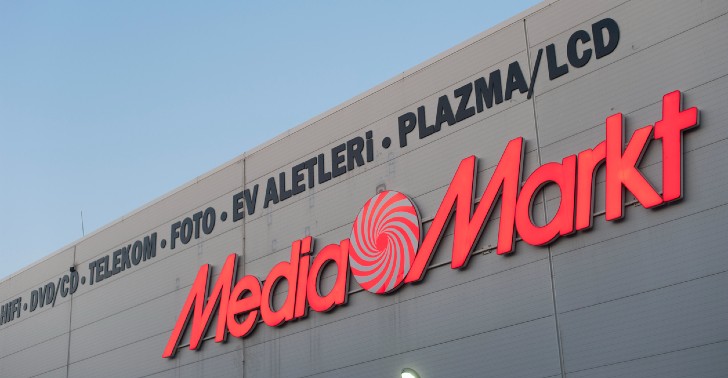Small and medium-sized businesses (SMBs) globally continue to face a turbulent economy. Research indicates that current market conditions have had a minimal positive impact on their bottom lines. But business owners can overcome economic challenges without going broke.
Constant Contact, a developer of digital marketing tools, released its Small Business Now report in September, revealing that marketing budgets are up, while confidence in their effectiveness is down.
A survey of more than 2,500 SMB leaders across the U.S., U.K., Canada, Australia, and New Zealand, along with insights from 8,000 consumers, revealed that fewer than one in five SMB owners are very confident in the impact of their marketing efforts.
The study identified a growing gap between the effort SMBs put into marketing and their confidence in gaining meaningful business results. Despite increased marketing budgets and the broader adoption of tools such as email marketing, AI, and video, only 18% of SMBs — down from 27% in 2024 — feel very confident in the effectiveness of their marketing.
Constant Contact reports that economic pressure is forcing SMBs to pivot. Email has reclaimed the top spot as the most trusted channel for 44% of worldwide respondents. Half of SMBs use AI for marketing, and 78% leverage video — but adoption hasn’t yet translated into more substantial confidence.
Only 17% feel very prepared to adapt to uncertainty. U.S. SMBs lag behind global peers in AI adoption. In Canada, many are leaning into the “Buy Canadian” movement, while SMBs in Australia, New Zealand, and the U.K. are more optimistic about what’s ahead.
Smita Wadhawan, chief marketing officer at Constant Contact, noted that SMBs are under pressure to deliver positive marketing results but feel they are doing more without getting more in return.
“They are working harder than ever, but without the time, expertise, or data to guide them. Many are still guessing about what will resonate with their customers,” she said.
Why SMB Marketing Confidence Is Falling
Table of Contents
The confidence gap voiced by a growing number of small business owners is driven by a perfect storm of economic pressure, complexity, and uncertainty, according to Frank Vella, CEO of Constant Contact. They are navigating rising costs, which 44% cite as their top source of stress.

“This pressure means every dollar spent on marketing needs to count, but their single biggest frustration is simply not knowing what’s working. They feel like they’re guessing, and that uncertainty erodes confidence, even when their effort is high,” Vella told the E-Commerce Times.
The report shows that only 37% of U.S. small businesses use AI, the lowest rate among all countries polled and significantly below the global average of 48%. Vella sees this as resulting not from a lack of interest but rather as a reflection of their intentional nature.
U.S. SMBs prioritize stability over speed. Many are running lean operations with very little time to experiment, so they stick with what they know works.
“There’s also a healthy skepticism about automation replacing the personal touch that sets their brand apart,” he offered.
The most significant barrier is the time required to navigate the learning curve. Add to that concerns about data privacy, content accuracy, and protecting their brand voice, Vella added.
However, Vella sees momentum building for AI. SMBs who use AI report stronger performance in email, paid social, and search marketing. “I’m confident we’ll see this AI adoption accelerate in the U.S.,” he affirmed.
Why SMBs Are Returning to Email
SMBs are shifting back to proven channels that offer more control and clearer results. The data shows that 44% of SMBs now say email is their most effective marketing channel, which is nearly double the 23% reported last year, according to Vella.
“This isn’t an accident. While social media is important, its effectiveness can be unpredictable,” he observed.
Email, on the other hand, provides SMBs with a direct, unfiltered line to customers. It is a channel they own, allowing them to communicate immediately and maintain those vital customer relationships, especially when every sale counts.
“In an environment where the top frustration is not knowing what’s working, email provides the clarity and results they desperately need. It’s a flight to what works,” he added.
Using Email To Build Customer Trust
Avoiding common email marketing mistakes will ensure trust-building success for SMBs, Vella said. The key is leveraging email as a direct, personal line of communication, not just a sales tool. It is also essential not to lose an authentic voice, especially with new technology.
For instance, nearly half of SMBs use AI to help write emails. A top concern is creating a brand voice mismatch, as Vella called it.
“The biggest mistake is letting automation replace the personal touch that makes your business unique. Use AI to brainstorm or get started, but always ensure the final message is genuinely yours,” he said.
Vella also cautioned SMBs to avoid eroding trust by making customers feel like just another number. Avoid guessing what they want.
“The key is to pay attention to what they respond to and refine your approach, which will give you the confidence that your efforts are truly connecting,” Vella recommended.
The Next Shift in SMB Marketing Tech
Vella noted that Constant Contact’s research shows the next major shift is not about a single new technology, but rather the intelligent integration of the tools SMBs are already adopting, such as AI. The next wave of technology must address businesses’ top struggle: not knowing what’s working.
“It has to move beyond just helping them create content faster and start providing genuine clarity and actionable insights,” Vella said. “If I had to name the single most important action they can take, it would be to focus intensely on what you can control and measure.”
Vella explained that Constant Contact’s e-commerce platform provides intuitive AI tools that act as an assistant, not a replacement, for marketing strategies. It helps SMBs write first drafts for emails and social posts — the top use case for AI — using clear insights and real-time data.
Industry analysts note that SMBs value easy-to-use tools that deliver measurable outcomes far more than long feature lists when choosing a marketing platform.
As a starting point, even without a platform, SMBs can use AI for email marketing assistance. For instance, instead of staring at a blank page, you can ask AI to brainstorm ideas or create a first draft, he suggested.
“You are still the expert on your business, so you can then edit and refine the content to match your unique brand voice,” he said.





